Who will become Queensland’s first $1bn start-up
Queensland is on a mission to foster, nurture and attract start-ups that could become $1bn “unicorns”, with a surprising number of businesses showing the potential to reach that lofty goal. Find out who our most successful start-ups are.
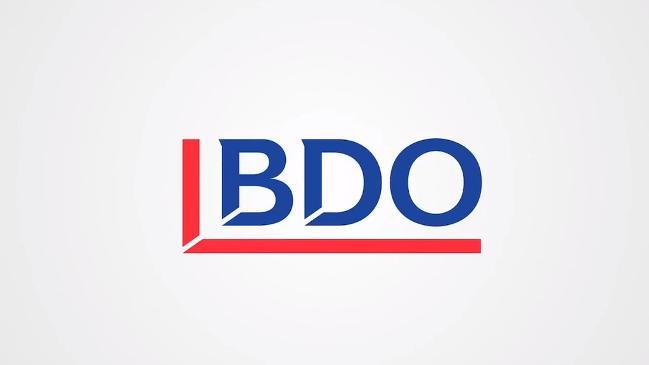
QLD Business
Don't miss out on the headlines from QLD Business. Followed categories will be added to My News.
Andrew Barnes believes in unicorns. Not the mythical one-horned creatures but - to use the parlance of the tech world - a start-up company valued at a billion dollars.
Barnes’ Logan-based online learning company Go1, along with fellow start ups Tanda, Clipchamp and Tritium, are in the running to be Queensland’s first “unicorn”, underscoring the growing maturity of the state’s tech eco-system.
These home-grown firms, also known as soonicorns or minicorns, are snapping at the heels of Australian tech stars that have already achieved unicorn status including Afterpay, Safety Culture and Canva. “This is an expanding space and we want to be part of it,” says Barnes, who describes Go1 as the “Spotify of education.”
Barnes says Queensland’s great weather and lifestyle make it an ideal place to attract the talent necessary to build a billion dollar tech company.
Industry sources says Go1 and Tritium, which specialises in electric vehicle recharging, are likely to be valued at between $350 million and $500 million. That would make them only one funding round away from achieving unicorn status.
Clipchamp is estimated to be valued at up to $100 million and could be two or three funding rounds away from unicorn status, given each round can double a start up’s valuation.
The Sunshine State’s natural beauty, its good universities and relaxed lifestyle are seen as strengths that overcome its traditional role as a branch office location for southern firms. The growth of the digital economy where offices can operate effectively anywhere on the planet is helping drive growth.
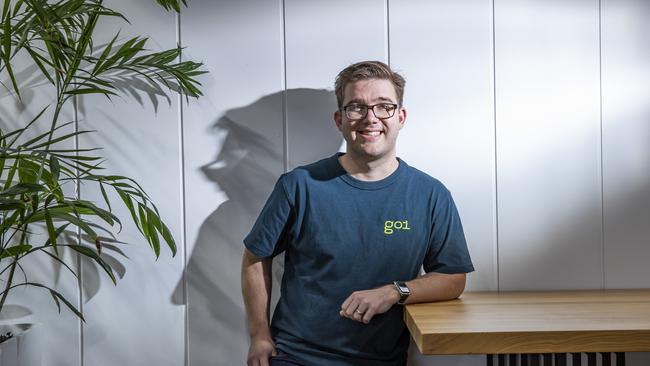
Go1, founded in 2014 with seed money from investors including tech guru Steve Baxter, now employs 220 people at its Logan headquarters where a full-time barista keeps the staff caffeinated and energised.
”We don’t have the challenges that maybe a traditional business would have operating out of southeast Queensland,” says Barnes, whose firm has attracted big name investors including Microsoft and Sales Force. ”The cost of serving a customer in Sydney for us is no different than if they are in Europe.”
Clipchamp co-founder Alex Dreiling came to Brisbane as young PhD student from Germany more than 15 years ago and immediately loved the city.
“When we started the business, there was never any suggestion we would move elsewhere,” he said. “Back then it was more of a big country town, but it has grown substantially. I have lived in Europe and the US and the lifestyle, the weather and the space is second to none here. The beaches and rainforest are all within reach.”
Dreiling says he doesn’t see achieving unicorn status as a goal, but his video content creation firm was working in a structurally huge market where anything was possible.
”The future will be about business moving to digital,” says Dreiling, whose firm’s software is used on social media platforms including YouTube and Instagram. “As consumers have learned to consume information in bite-sized chunks of video, whether it be about clothes, recipes or fixing a car.”
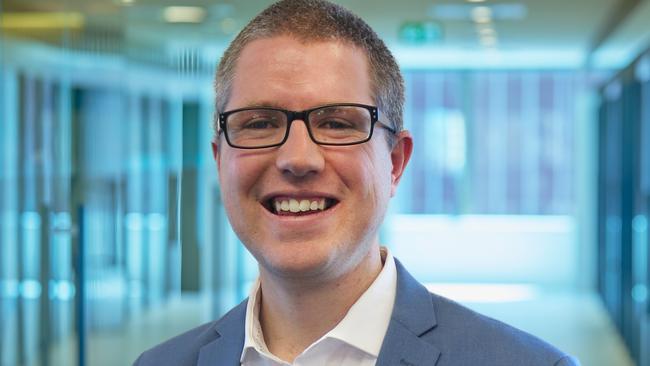
BDO director of start-ups Marc Orchard says that while Queensland does not rival big tech centres such as Sydney, London or Silicon Valley, it was an increasingly attractive place for start-ups
”The biggest things holding back Queensland in the past has been lack of capital, talent and the support of mentors,” says Orchard. ”But now companies like Tanda and Go1 are seeing their future in southeast Queensland. They have access to great quality graduates and people who want a more balanced lifestyle.”
He says expatriates who have built successful careers in places like Silicon Valley and New York are coming back to Queensland, bringing their capital and mentoring skills with them.
”Former Uber executive Chris Saad has moved back here to start a family while serial entrepreneur Carl Hartmann now lives in Noosa. So while we have the old guard in the form of Steve Baxter and Bevan Slattery there are these new people who are moving here and becoming investors and mentors.”
Stew Glynn, a partner at investment platform Ten13, says it is not a question of if, but how soon the next technology unicorn comes out of Queensland.
“We‘re happy to say we’ve made a few early investments in companies like Clipchamp and Go1 that are looking to achieve just that,” says Glynn.
“What we‘ve seen after now having several unicorns come out of Australia is the concept of engineering and product hubs staying in Australia but sales, partnerships and marketing being based on the ground where you are selling. It’s less relevant for these places to be limited to Sydney and Melbourne, Brisbane is already proving it can be done from here.”
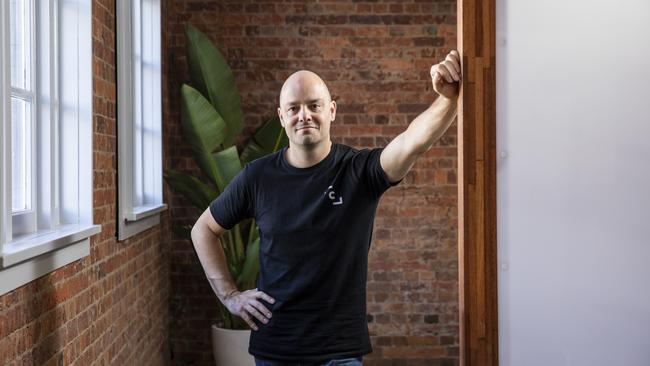
Safety Culture, which was founded in a Townsville garage, is considered the local unicorn that got away. The company which specialises in health and safety apps moved its head office to Sydney in 2016 in order to recruit more software engineers, but co-founder Luke Anear does not rule out returning the HQ to Queensland at some stage in the future.
“I have actually been working out of Queensland for the past couple of months,” says Anear, who notes the company still maintains a big office in Townsville.
“Townsville has been good to us. The Queensland lifestyle is a plus and the talent pool is getting deeper. Businesses like G01 and Safety Culture show you can build a global company here in Queensland.”
Tanda senior workforce success executive Phil Johnson says the rostering software start-up has recently hired key people from southern capitals who specifically wanted to relocate to Queensland. “The lifestyle and cost of living are huge draw cards,” Johnson says.
Clipchamp’s Dreiling says that while capital raising can be an issue in Queensland, the main challenge was to educate local investors about the tech sector.
“It is not about a lack of money as there is a lot of money around,” says Dreiling. ”There is a lack of understanding around the tech sector and what drives it. It is easier to raise money in more traditional sectors such as mining and tourism.”
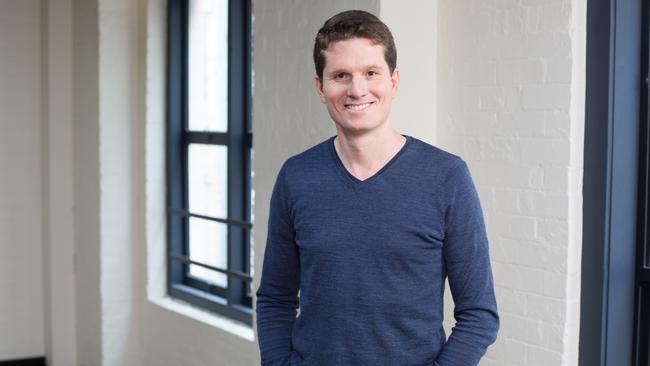
Go1’s Barnes adds there is a risk aversion in the Australian business community about becoming customers of tech start-ups. “It is easier to sell overseas than domestically,” says Barnes. “We have found it easier as we have gotten bigger so it is a bit of a chicken and egg situation.” He says government support of the tech sector should be around procurement rather than grants.
Queensland’s laid-back style was proving a plus for the tech sector, with BDO’s Orchard saying the Queensland start-up community tended to be more collaborative than other larger eco-systems.
“”People want to sit down and have a beer or a coffee and help each other,” Orchard says. “I spent some time in Sydney and found it a bit more transactional.”
Tanda’s Johnson agrees and notes that “everyone knows everyone here.” “Because we tend not to have competing products, we are not at each other’s throats,” he says.
Tanda has experienced a surge in revenue over the past few years amid the growth in the “software as a service sector.”
BDO’s Orchard says the hope is that some of these Queensland start-ups will grow big enough in the next couple of years to become stock market listed companies. “They could then start investing in the next generation of companies coming up,” he says.
Potential Queensland Unicorns
1. Go1 (education software)
2. Tanda (rostering)
3. Clipchamp (video content production)
4. Gilmour Space Technologies (rocket fuel systems)
5. simPRO (cloud-based field service technologies)
6. Redback Technologies (solar energy packs)
7. Redeye Apps (engineering and architectural software)
8. ORIGO Education (online maths curriculum)
9. Outfit (content management platforms)
10. Tritium (electric vehicle charging)

